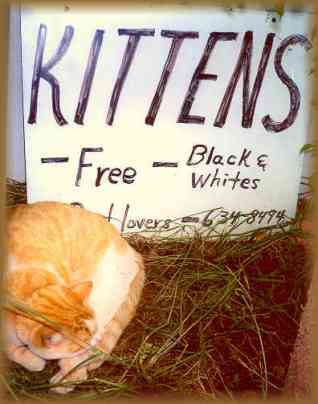 Worry, Worry, Worry
Worry, Worry, Worry
All About Anxiety


Coping successfully with anxiety involves taking action:
Disputing irrational thoughts
Learning to physically relax
Confronting the source of fear
Focusing on something else
Obtaining social supports
Obtaining treatment/medication when needed
Following through on treatment plan

Buddy the Cat says, "Helping others helps you, too. I help the homeless!"
Anxiety and poor coping mechanisms may damage mental well being, if inner conflicts become overwhelming. Anxiety can be difficult to define because it touches on so many different aspects of life. Causes of anxiety include:
Family history of anxiety
Medical problems
Alcohol and drug abuse
Exposure to severe traumatic events
Distorted thinking (blowing things out of proportion, over generalization, jumping to conclusions, etc.)
Anxiety disorders afflict more than 20% of people during their lifetime. Some of the various disorders include:
Generalized Anxiety Disorder: extreme worry, restlessness, feeling “keyed up”, difficulty concentrating, irritability, muscle tension and insomnia, with symptoms affecting work, home or school.
Panic Attacks: sudden, intense feeling of apprehension, pounding heart, sweating, trembling, shortness of breath, chest pain, nausea, dizziness, fear of losing control, fear of dying, tingling/numbness of extremities, and chills/hot flashes.
Agoraphobia: involves fear of being someplace from which someone cannot escape or get help
Phobic Disorders: an irrational, persistent fear of specific activities with behavior that disrupts daily living, and an immediate response of panic, sweating, shortness of breath and pounding heart when exposed to the object of fear.
Post Traumatic Stress Disorder: symptoms directly relate to a traumatic incident, such as war experiences, rape, torture, sudden loss of home/family, etc. The person experiences intense anxiety when reliving the traumatic event and may block out aspects of it from memory, with some emotional detachment from others occurring.

Buddy says, "It's important to relax in the workplace."
|
|
|
Buy this 2004 Calendar at AllPosters.com |